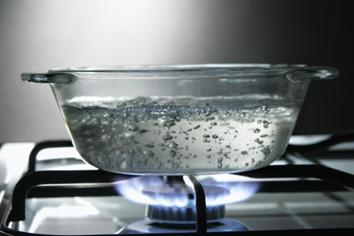Quantities calculation of sensible heat is he application of heat can cause a variation in temperature or a change of physical state, such as the transition from a solid to a liquid state.
- When heat applied to or removed from a type of matter only leads to a variation of temperature, without changing its physical state, we talk about sensible heat.
- When heat applied or removed leads to a change of physical state without a variation of temperature, we talk about latent heat.
- When heat applied or removed leads to a change of physical state and a variation of temperature, we talk about total heat.
We are going to learn how to calculate quantities of sensible heat.
If we know the specific heat of a body we know how much heat needs to be applied to raise 1 [kg] by 1 [K]
If we are working with several [kg], we just need to multiply by the number of [kg], and if the temperature is raised by several [K], we just multiply by the number of [K].
Q = M x C x ΔT
With:
Q: Quantity of heat in [kJ]
M: Masse treated in [kg]
C: Specific heat in [kJ/kg.K]
ΔT: difference in temperature increase [°C] or [K])
Note:
« Δ » is
an ancient Greek letter (pronounced delta) which means « difference
of ».
« ΔT » is
therefore the difference in temperature which can also be written as
DT.
Hence:
Q = M × C× ΔT
= M × C× DT

Question
What quantity of heatis needed in [kJ], to heat 3 [kg] of water by 1 [°C] (1 [K])?
12.54 [KJ] (11.88 Btu)
Explanation:
The specific heat of water is 4.18 [kJ/kg.K] (3.96 Btu/kg.K)
The quantity of heat needed to raise by 1 [K] a mass of 3 [kg] of water will be:
3 x 4.18 x 1 = 12.54 [kJ] (11.88 Btu)
Question
What quantity of heat is needed in [kJ], to heat 1 [kg] of water by 85 [°C] (85 [K])?
355.3 [kJ] (336.8 Btu)
Explanation:
The specific heat of water is 4.18 [kJ/kg.K] (3.96 Btu/kg.K)
The quantity of heat needed to raise by 85 [°C] (85 [K]) a mass of 1 [kg] of water will be:
1 x 4.18 x 85 = 355.3 [kJ]

Question
What quantity of heat is needed, in [kJ], to heat 3 [kg] of water from 10 to 35 [°C]?
313.5 [kJ] (297 Btu)
Explanation:
The specific heat of water is 4.18 [kJ/kg.K] (3.96 Btu/kg.K)
The quantity of heat needed to raise the temperature of a mass of water of 3 [kg] from 10 to 35 [°C], i.e. an increase of 25 [°C] (25 [K]), will be:
3 x 4.18 x 25 = 313.5 [kJ]
Question
What quantity of heat, in [kJ] will be needed to be removed from 3,500 [kg] of water to cool it down from 12 [°C] to 6 [°C]?
87,780 [kJ] (83,199 Btu)
Explanation:
The specific heat of water is 4.18 [kJ/kg.K] (3.96 Btu/kg.K)
The quantity of heat needed to lower the temperature of a mass of 3,500 [kg] of water from 12 to 6 [°C], i.e. a decrease of 6 [°C] (6 [K]), will be:
3,500 x 4.18 x 6 = 87,780 [kJ]
Question
What quantity of heat (in [kJ]) will be needed to heat 150 [kg] of air from 5 to 25 [°C] (Cair = 1 [kJ/kg.K])?
3,000 [kJ] (2,843 Btu)
Explanation:
The specific heat of air is 1 [kJ / kg K]
The quantity of heat needed to heat a mass of 150 [kg] of air from 5 to 25 [°C], i.e. an increase of20 [°C] (20 [K]) will be:
150 x 1 x 20 = 3,000 [kJ]
